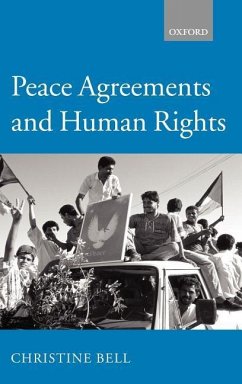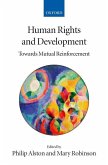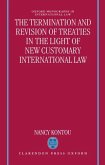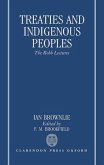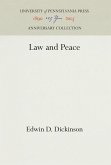Finally, to provide a context from which to consider the relationship between justice and peace more generally, and draw some conclusions about international law's capacity to provide a positive context for conflict transformation. The author identifies three main elements of the human rights component of peace agreements in agreements: provision dealing with self-determination and minority rights; provision for institutions to protect human rights; and provision dealing with past human rights violations. The central chapters of the book begin with a discussion of relevant international legal provision, and then focuses on a comparison of how the four sets of peace agreements addressed the issue. The conclusions returns to the possible relationship between justice and peace, and how this accounts for where human rights ends up in peace agreements, together with observations as to good and bad practice, and possible future directions for international law and actors in conflict situations.
This book examines the place of human rights in peace agreements against the backdrop of international legal provision. The introductory analysis draws on a review of many peace agreements, while the body of the book focuses on the peace agreements in four cases: South Africa, Israel/Palestine, Northern Ireland, and Bosnia. It addresses the phenomenon of the post-cold war peace process, the types of agreements that are typically produced, and the typical role of human rights in those agreements.
Hinweis: Dieser Artikel kann nur an eine deutsche Lieferadresse ausgeliefert werden.
This book examines the place of human rights in peace agreements against the backdrop of international legal provision. The introductory analysis draws on a review of many peace agreements, while the body of the book focuses on the peace agreements in four cases: South Africa, Israel/Palestine, Northern Ireland, and Bosnia. It addresses the phenomenon of the post-cold war peace process, the types of agreements that are typically produced, and the typical role of human rights in those agreements.
Hinweis: Dieser Artikel kann nur an eine deutsche Lieferadresse ausgeliefert werden.

